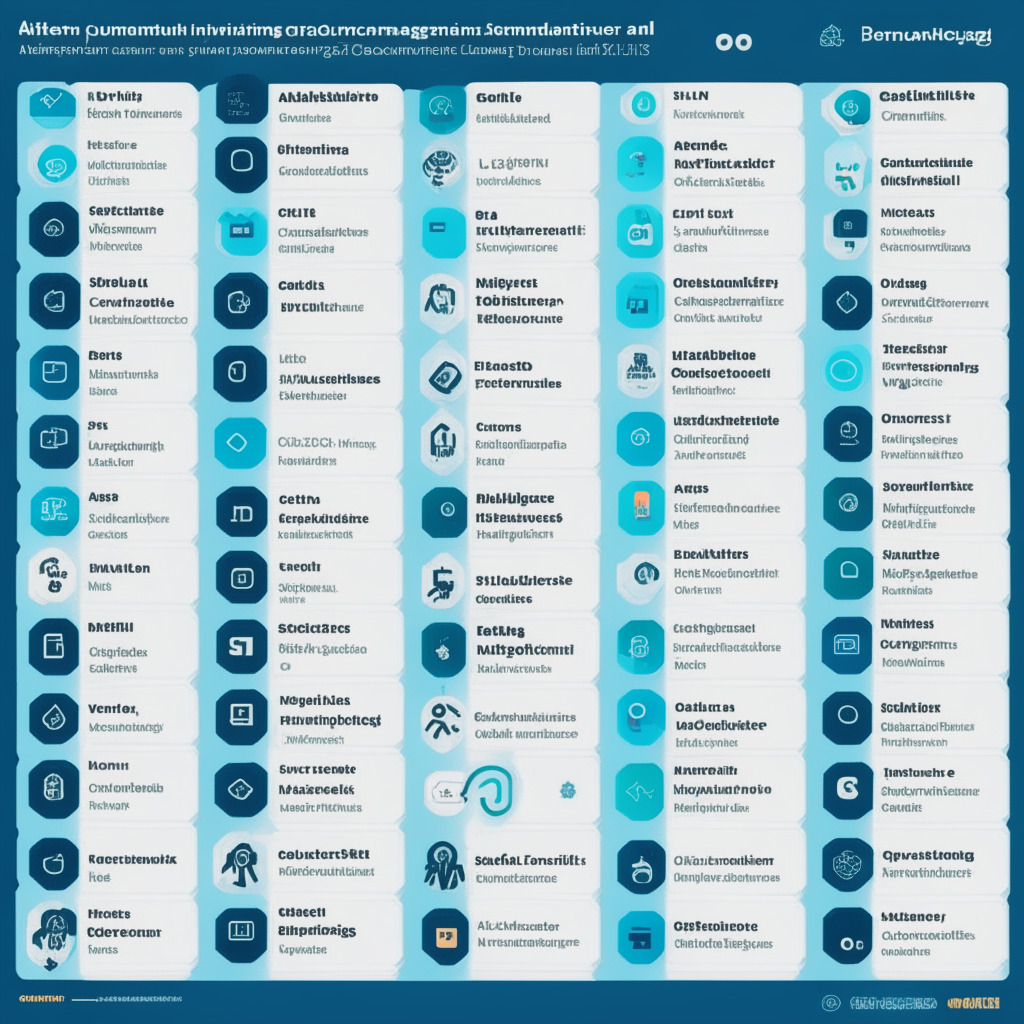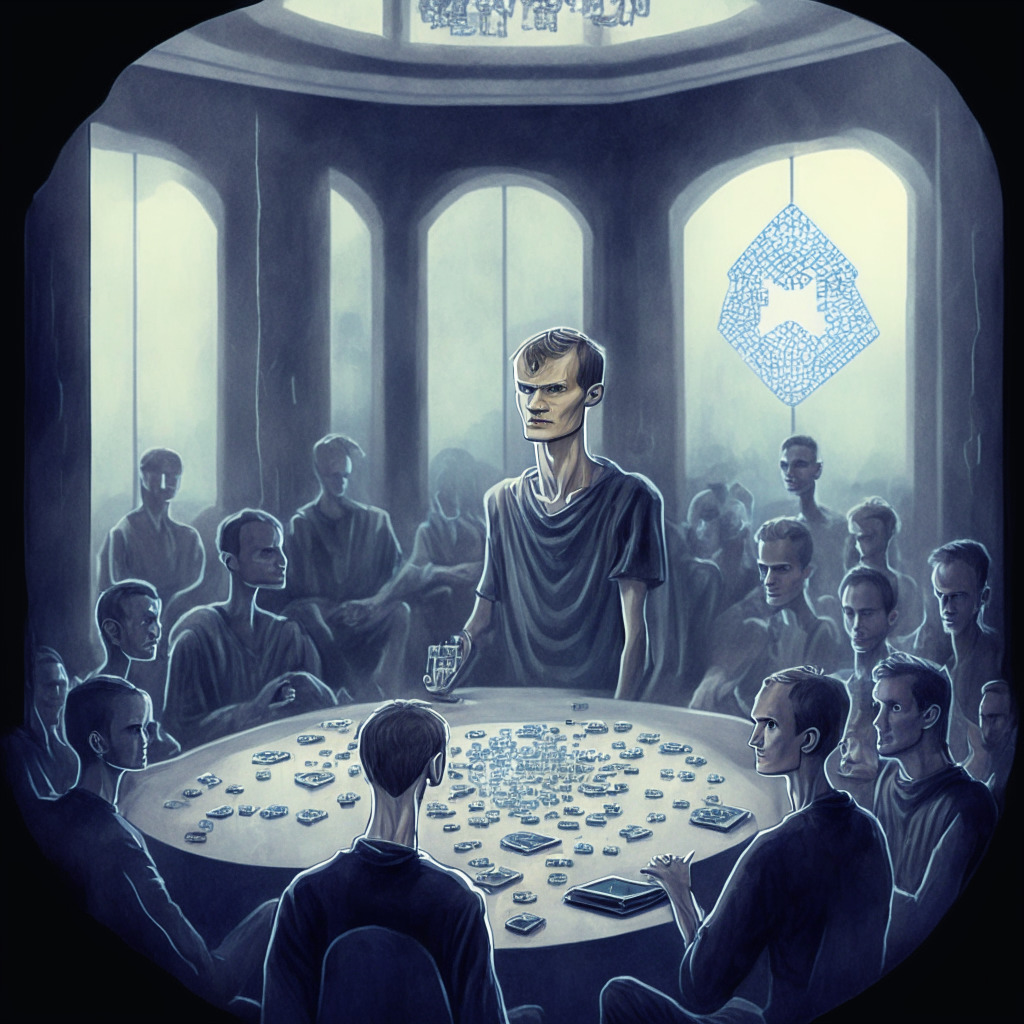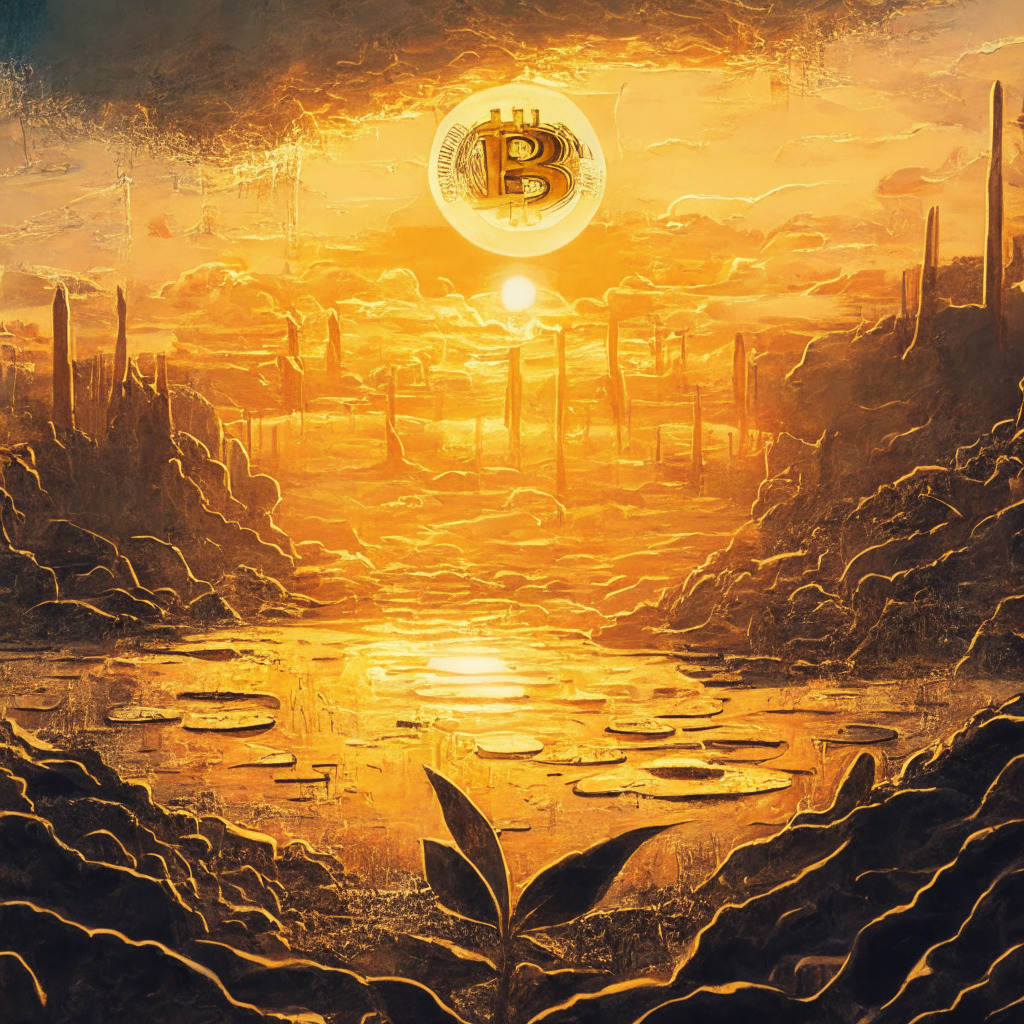“Cronos Labs has launched a recruitment phase for its $100M accelerator program, aiming to support early-stage projects that promote the adoption of decentralized applications (DApps). However, this strategy can inadvertently lure scammers using government-owned website URLs to dupe victims and access their crypto wallet holdings.”
Search Results for: Amazon Web Services
Exploring Twists and Turns in The Blockchain Landscape: Reddit, Amazon, Meta and More
Reddit’s new avatar series reflects its commitment to the blockchain digital art space, introducing anti-bot measures for a streamlined user experience. Amazon deepens its Web3 involvement by integrating new blockchain tools into its platform. However, Meta’s new Threads social app falls short for crypto strategists, highlighting the fleeting nature of crypto trends. Overall, the blockchain landscape showcases advancement, resilience, and challenges in the future of technology.
Rise of Internet Computers: Eluding Centralization and AWS-like Services or Trading Security?
“Dfinity is developing a system called the Internet Computer, aiming to shift the foundation of the blockchain realm. They plan to remove centralized systems and replace them with ‘canister smart contracts’, providing a decentralized alternative to services like Amazon Web Services. However, these smart contracts can pose serious risks if flawed.”
Hive Blockchain’s Bold Move: Shifting from Cryptomining to AI Data Center Services
Hive Blockchain, a major Bitcoin mining farm, recently announced its ambition to extend customer access to its data centers, offering enhanced privacy for training large AI language models – distinctly setting it apart from rivals such as OpenAI’s ChatGPT. The company’s shift towards GPU rentals for AI training questions the traditional understanding of mining operations and its long-term viability.
GPU Shortage as a Catalyst for Web3: How Decentralized Infrastructure Networks Benefit AI Startups
The GPU shortage could accelerate the adoption of Web3 by mainstream thanks to decentralized physical infrastructure networks (DePIN). Protocols like Akash, enabling GPU leasing to AI start-ups, and Arweave, offering permanent data storage, could help alleviate resource issues. DePIN could provide inexpensive, reliable infrastructure for startups, shielding them from AI threats and offering advantages over Web2.
Amazon’s $100M Generative AI Center: Boosting Cloud Services or Raising Privacy Concerns?
Amazon’s cloud unit, AWS, invests $100 million in a generative AI center to enhance cloud infrastructure services capabilities and maintain market leadership. This move aims to bridge the gap between Amazon’s AI experts and clients seeking advanced technology applications, amidst rising competition from Microsoft and Google.
Amazon’s $100M Generative AI Fund: Economic Boon or Integration Challenge? Pros & Cons Explored
Amazon Web Services (AWS) has committed $100 million to support generative AI startups through its Generative AI Innovation Center. This technology, capable of producing innovative content, has the potential to add $4.4 trillion annually to the global economy and revolutionize diverse industries.
Amazon’s AI Revolution: Balancing Efficiency Gains with Potential Drawbacks in eCommerce
Amazon is increasingly using AI to enhance delivery speeds and improve customer satisfaction by optimizing inventory placement and regionalization. AI helps predict product demand, identify suitable inventory placement, and facilitate same-day or next-day deliveries from nearby distribution centers.
Exploring Web3 Wallets: Bridging the Gap Between Security and Convenience
The Web3 ecosystem relies on wallets for user identity verification and transaction authorization. Wallet infrastructures like Magic, Dfns, and Web3Auth aim to provide both security and convenience by exploring seedless wallets, multiparty computation (MPC), and Hardware Security Modules (HSM).
Expanding Cryptocurrency Custody: Fireblocks Partners with Cloud Giants, Security Concerns Linger
Cryptocurrency custody technology provider Fireblocks has expanded its support to cloud service providers including Amazon Web Services, Google Cloud Platform, Alibaba Cloud, Thales, and Securosus, aiming to cater to banks using on-premise and cloud-based IT infrastructures.
Ethereum’s Centralization Dilemma: Assessing AWS Outage Impact and Future Risks in Blockchain Networks
This article highlights the potential risks and consequences associated with Ethereum’s reliance on Amazon Web Services (AWS) for hosting, as a recent AWS outage raises questions about the fragility of such dependence. It emphasizes the importance of developing decentralized technologies and infrastructures for creating more resilient networks.
$100M Cronos Accelerator Program: Exploring AI & Blockchain Convergence in 8 Startups
Cronos Labs launches its second cohort for the Cronos Accelerator Program, backed by a $100 million investment. Eight handpicked early-stage crypto projects will receive mentorship, funding, and AI-related workshops in collaboration with Amazon Web Services. The 12-week program culminates in a Demo Day for securing further investments.
Worldcoin under Kenya’s Scrutiny: Espionage Allegations, Privacy Breaches, and Blockchain’s Regulatory Challenges
Kenyan authorities express concerns over Worldcoin’s operations involving data mining of citizens’ iris scans for cryptocurrency tokens. This prompts questions about potential transnational personal data transfer, violation of the Data Protection Act, and the legal standing of Worldcoin affiliates, underscoring the need for regulation and transparency in blockchain markets.
Nvidia Raided by French Antitrust Agency: Unraveling the Implications for the Digital Industry
French authorities have raided Nvidia offices as part of a larger investigation into the cloud computing sector and potential anticompetitive practices. The implications of this action underscore an ongoing tug-of-war between innovation and market monopolization in the tech industry.
Decentralizing Crypto Prices: The Pros and Cons of Relying on Blockchain for Price Estimates
The UTXOracle, a tool created by a developer @SteveSimple, uses Python programming to independently trace Bitcoin’s price using a Bitcoin Core full node, without relying on external sources. This open-source tool calculates an average daily USD price for Bitcoin by scrutinizing block patterns, offering a decentralized method, as opposed to obtaining price info from centralized exchanges. These capabilities can impact crypto smart contracts and promote a fully decentralized finance system.
Ethereum’s Holseky: Innovation Towards Scalability or a Step Towards Centralization?
The Ethereum blockchain is introducing Holesky, the largest test network, set to resolve scalability issues before projects go live. Despite its high potential and efforts in scaling and energy use, concerns remain about Ethereum’s centralized nature and financial barriers for individual validators.
Ethereum’s Proof-of-Stake Transition: A Year in Review and a Look into the Future
“Ethereum transitioned to the proof-of-stake system reducing power consumption by over 99% and making the network economically deflationary. However, anticipated price surge due to deflationary pressure hasn’t materialized swiftly. Liquid staking providers control significant amounts of staked Ether, raising potential centralization concerns.”
Balancing Act: Ethereum’s Quest for Privacy, Regulation, and Decentralization with Privacy Pools
Ethereum’s co-founder, Vitalik Buterin, leads a privacy protocol initiative, ‘Privacy Pools,’ employing zero-knowledge proofs to verify user funds legitimacy, preserving transactional privacy. The protocol aims to create a separation that filters out funds related to criminal activities, harmoniously balancing financial privacy and regulation.
Federal Reserve Impacts on Bullish BTC and Ethereum’s Centralization Struggles
Arthur Hayes, former CEO and co-founder of Bitmex, anticipates a response to the BTC bull market within six to twelve months. This expectation is connected to the Federal Reserve’s $25 billion program meant to stabilize the U.S. banking system. Meanwhile, Ethereum faces challenges around the centralization of nodes and scalability.
Ethereum’s Tug of War: Struggling Between Node Centralization and Ultimate Scalability
Ethereum is battling with the issue of node centralization, with much of its network activity verification reliant on centralized services like AWS. Ethereum’s co-founder, Vitalik Buterin, has indicated that true decentralization, achievable through “statelessness” and operability on affordable hardware, is a key part of Ethereum’s long-term roadmap, despite the technical challenges anticipated.
Harnessing the Power: The Intersection of AI and Cryptocurrency in Cronos Labs’ $100M Program
“Cronos Labs is looking for eight innovative crypto startups to join their $100 million accelerator program, aiming to marry artificial intelligence (AI) with crypto. Blockchain developers are leveraging the growing interest in AI to accelerate the growth of the digital economy, projecting AI and cryptocurrency as the next critical turning point.”
Demystifying AI on Blockchain: A Pathway to Transparent and Trustworthy Tech Adoption
“The global rise of AI is impeded by transparency and trust issues, which could potentially be resolved by applying decentralized computation via blockchain technology. However, most blockchains lack sufficient infrastructure to support AI models as they demand substantial computational resources and data sets.”
Unveiling the Pros and Cons: SEC Scrutiny, Bitcoin as a Commodity and the Future of Crypto Regulation
The SEC’s regulatory scrutiny towards crypto is seen by some as strengthening Bitcoin’s market position. Classification of Bitcoin as a commodity rather than a security is due to its decentralised structure, eliminating capital collection for future returns. Despite its commodity classification, Bitcoin can feature in contracts resembling securities. This regulatory landscape highlights the need for careful navigation amid increased crypto regulation.
Navigating Turbulence: Filecoin’s Journey Amid Crypto Market Volatility and Adoption Woes
Filecoin, a blockchain storage network, despite market turbulence, saw its storage utilization rate surpass 7%. However, it faced a 40.7% decline in protocol revenue this quarter, largely due to the falling value of FIL tokens and market volatility. Filecoin’s move to release the virtual machine (FVM) shows promise in navigating these challenges.
Blockchain and Data Storage Dilemma: The Triumph and Trial in Powering the Digital Revolution
“The continual growth of data has increased demand for effective storage solutions. Blockchain technology offers decentralized, secure, and scalable solutions. Experts propose collaboration and leveraging decentralized networks to tackle this issue. Concerns exist in integrating with pre-existing systems, however, strategies including data sharding and Layer-2 solutions may effectively expand storage capacity.”
Potential Crypto Calamity: Unmasking Huobi’s Near-Miss Data Breach and Its Implications
Huobi, a major crypto exchange, recently danced dangerously close to a potential disaster due to a massive vulnerability that exposed user assets for nearly two years. The breach was discovered by researcher Aaron Phillips and could have resulted in the largest crypto theft in history if exploited.
Hive Blockchain: Pioneering the Move from Crypto Mining to AI with Promises of Superior Privacy
“Hive Blockchain aims to leverage the intersection of big data, privacy, and cryptocurrency. Declaring an intent to facilitate AI training within its data centers, Hive differentiates itself with promises of superior data privacy. The company’s strategic shift signifies a gradual transition of mining enterprises towards the booming AI sector.”
EU Crypto Regulations and Market Innovations: Balancing Growth and Compliance
The EU proposes “prohibitive” rules to keep unbacked crypto out of the traditional financial system, while Fireblocks expands support for major cloud providers and OKX launches Nitro Spreads feature for OTC institutional liquid market. Digital asset investments surge, but upcoming regulations may impact growth and innovation.
Crypto Miners Venturing into AI and Cloud Computing: Opportunities and Challenges Ahead
Crypto miner Applied Digital ventures into AI and cloud computing, signing a deal to host AI cloud computing loads in its data centers, potentially earning $460 million over 36 months. This move reflects an increasing trend of crypto miners seeking alternative revenue streams amid competitive market conditions.
SEC vs Binance.US Showdown: Unearthing Past Statements and Facing New Legislation
The U.S. SEC’s intention to freeze Binance.US’s assets faced a setback as Judge Amy Berman Jackson advised bilateral negotiations. Meanwhile, HKMA urges banks to accept crypto exchanges as clients, and the European Parliament passes the EU Artificial Intelligence Act, impacting governance of AI technologies.
Nigeria’s SEC Crackdown on Binance & US Regulatory Battle: What it Means for Crypto’s Future
The Nigerian SEC ordered a cease and desist notice against Binance Nigeria Limited, a “scam entity” claiming association with Binance. This development occurs amidst regulatory scrutiny in Nigeria, lawsuits in the US, and ongoing legal battles between exchanges and regulatory agencies, raising crucial conversations about the future of the crypto market.
Stable Crypto Weekend Meets Regulatory Developments: Market Impact and the Future of Decentralization
The cryptocurrency market showed stability over the weekend, while a federal judge approved a temporary agreement between the SEC and Binance. This agreement ensures only Binance.US employees access customer funds amidst ongoing legal developments and increased emphasis on decentralization in the industry.































